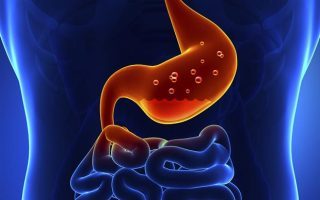- Home
- Editorial
- News
- Practice Guidelines
- Anesthesiology Guidelines
- Cancer Guidelines
- Cardiac Sciences Guidelines
- Critical Care Guidelines
- Dentistry Guidelines
- Dermatology Guidelines
- Diabetes and Endo Guidelines
- Diagnostics Guidelines
- ENT Guidelines
- Featured Practice Guidelines
- Gastroenterology Guidelines
- Geriatrics Guidelines
- Medicine Guidelines
- Nephrology Guidelines
- Neurosciences Guidelines
- Obs and Gynae Guidelines
- Ophthalmology Guidelines
- Orthopaedics Guidelines
- Paediatrics Guidelines
- Psychiatry Guidelines
- Pulmonology Guidelines
- Radiology Guidelines
- Surgery Guidelines
- Urology Guidelines
Treatment of severe hyperacidity prevents cancer oesophagus

Karolinska Institutet scientists have conducted a study on almost one million Nordic patients and found that Medical or surgical treatment of severe hyperacidity prevents cancer of the oesophagus,The results of the study have been published in the scientific journal JAMA Oncology.
Hyperacidity and acid reflux disease affect 10-20 per cent of the adult population. Severe reflux over a long period is the strongest risk factor for cancer of the oesophagus. It is usually adenocarcinoma, aggressive cancer that is difficult to treat.
"Previous research results have shown poor cancer-preventive effects from anti-reflux surgery. The difference now is that for the first time we can show statistically significant results because we have a sufficiently large study with a long follow-up period of over 15 years following the operation," says Jesper Lagergren, consultant surgeon and professor at the Department of Molecular Medicine and Surgery, Karolinska Institutet, who led the study.
Reflux is usually treated with antacids and proton pump inhibitors to make the stomach contents less acidic to reduces symptoms. Another alternative is to have an anti-reflux surgery that prevents stomach contents regurgitating back to the oesophagus. The previous studies could not conclusively demonstrate that these treatments prevent oesophageal cancer since they were not been sufficiently large to ensure that conclusions can be drawn on any long-term cancer-preventive effects.
The researchers used health data records from 1964 to 2014 in the five Nordic countries in the present study. More than 940,000 patients with reflux were included in the study, out of which about 895,000 received medical treatment and of those nearly 2,370 patients (0.3 per cent) developed cancer of the oesophagus during the follow-up period. The risk of cancer of the oesophagus decreased over time following treatment and was similar to that of the corresponding population after 15 years or more in those who received medication.
Out of more than 48,400 patients who had anti-reflux surgery, 177 (0.4 per cent) developed cancer of the oesophagus during the follow-up period. This shows that the risk of oesophageal cancer clearly fell also in this group and was at the same level as in the corresponding population 15 years or more after the operation.
When the patients with reflux who had an operation were compared with those with reflux who received medication, the patients who had been operated on had a slightly higher risk of oesophageal cancer during the entire follow-up period, but the risk did not increase over time. This is probably caused by the fact that the operated patients had more serious reflux from the beginning.
"The results show that effective medical or surgical treatment of reflux prevents cancer of the esophagus. But because the individual's risk of developing oesophageal cancer is low, even in those with reflux disease, the results do not justify treating reflux solely as a cancer-preventive measure. The symptoms and complications of reflux disease should continue to govern treatment," says John Maret-Ouda, physician, and scientist at the Department of Molecular Medicine and Surgery at Karolinska Institutet in Sweden and the first author of the study.
However, he points out that for the small percentage of people with severe reflux in combination with other risk factors for oesophageal cancer, such as obesity, male gender, and mature age, effective and continuous medical treatment or an operation to treat reflux is recommended.

Disclaimer: This site is primarily intended for healthcare professionals. Any content/information on this website does not replace the advice of medical and/or health professionals and should not be construed as medical/diagnostic advice/endorsement or prescription. Use of this site is subject to our terms of use, privacy policy, advertisement policy. © 2020 Minerva Medical Treatment Pvt Ltd